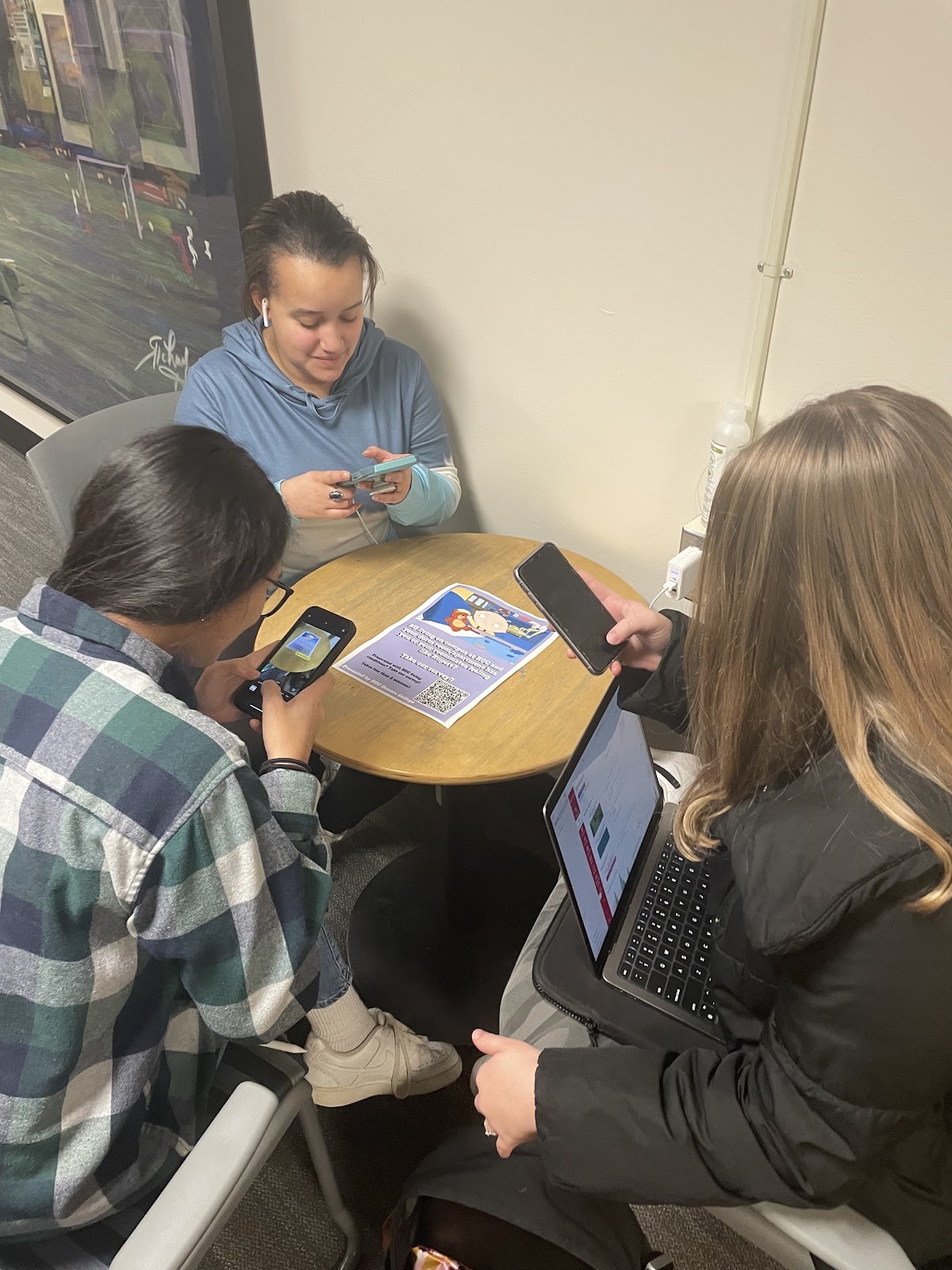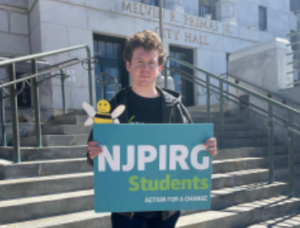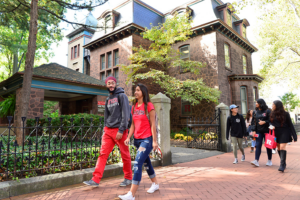
Visionary Freshmen Being the “change they wish to see” through radical ideas and projects
Dorming on campus comes with its set of pros and cons, pros being freedom to explore, adventure, meet new people, live with new people, work on your own schedule, and more. However, when it comes to the cons aspect of dorming on campus, one’s immediate answer is the cleanliness of the living space, “how hygienic and safe is it?”
Simply, as a norm, we, as students, are all conditioned to believe that college life of living on-campus is bound to be unhygienic, scrappy, and stingy; instead of digging deeper into the reality of this notion.
Rutgers University-Camden is a minority -majority populated school- where many attending students are first-generation students coming from complex backgrounds, and environments to come learn, grow, and move on to be successful in their own fields. However, how is all of this possible in an unsafe, unjust, and unclean environment? Where several aspects in the system are designed to work against you? Making the already existing obstacles harder to cross over. Students are expected to accept this narrative of the dorm room life, or scrappy ‘service’ on campus, a life of cutting corners, making adjustments simply because it’s been like that and is simply just like that, instead of retaliation, questioning the standards established and the basis of this very notion of unjust.
According to Mahatma Gandhi’s famous quote, “Be the change you wish to see” a group of staunch first year students, became the change they wished to see within this system of unjust. Shaan Mody, a freshman and lead researcher of the Campus Conditions and Physical Health research paper, saw this matter as a pressing problem, analyzing the deep rooted issue within the overall students and staff performance in regards to the overall infrastructure, dorm conditions, impacting overall performance academically. Shaan, along with his team, dug deep into the disparity between the potential of what could be versus what should be, and sought to make amends in the immoral system existing.
As a result, uncovered the intricate web of reasons college going students and staff, in the Rutgers University-Camden campus, might find it hard to succeed academically due to the external barriers existing within the school. Through methodical surveys, meetings with the heads of individual schools, offices, The President of the University, The Chancellor, and active collaboration with powerful student body organizations such as the SGA, and consistency in their mission to bring about change and equity in the school, here. The group worked, and is working, to bring about more change, within the campus community to better every student and staff member’s experience on campus, and ultimately “level the playing field for all”, not just for students but for staff and faculty alike, and make success more reachable.
Shaan Mody, Emma Bogdan, and Joseph Lescht led the research for the 30-page research paper that they remarkably researched, analyzed, wrote, and published all within one semester of just being here, as active change making freshman-driven and motivated to question and change the wrongs.
The team designed a PhD level research paper, the incredible team took to researching the campus population, surveying as many as possible to identify the key aspects of their external obstacles, that can be fixed, through a gradual system of new implementations. Once the data was collected, they distinguished this data into various categories based on responses, critically analyzed the information, and drew intellectual conclusions as such. Upon publishing their findings, through the 30-pg research, they reached out to the representatives of different schools within the university, and representative faces of the University itself, such as President Holloway, Chancellor Tillis, Mary Beth Daisy, and more to inform them of the wide scoping problem of the environmental role plays in the student/staff success, bring about awareness, and seek to change through the top onwards, identifying the necessary steps needed to take in order to tackle this deep rooted problem through systemic steps; bring awareness and hope that they can make change and bring about equity.
Personal statements from the leading researchers of the paper include the following, as they detail their personal connection to the project, as well as their experiences in the process.
Shaan:
“When I first heard about the conditions of the facilities at Rutgers University-Camden, I was shocked. As a student, I understand the importance of having a safe and functional learning environment, and the fact that students and faculty were experiencing such difficulties was unacceptable to me. That’s why I was motivated to conduct research on this topic and see if there was a correlation between campus conditions and physical health, academic performance, and execution of faculty/staff duties. The ideation process for this project started with brainstorming ideas with my . We all agreed that this was an important topic to explore and we wanted to find a way to give voice to the students and faculty who were experiencing these issues. From there, we created a survey that we disseminated to both students and faculty over a 4-week course period.
The journey was both challenging and rewarding. We had to navigate the complexities of collecting and analyzing data while also ensuring the efficacy of survey respondents. However, seeing the results of our survey and the impact it could have on the Rutgers-Camden community made it all worth it. The survey results were concerning, but not surprising. It was clear that the poor conditions of the campus were affecting both the physical and academic well-being of students and faculty. Mold, insects, and present in the facilities posed significant health risks, and the overall dissatisfaction with the facilities was a major academic distraction.
I am pleased to report on the progress made by the administration in response to our findings. Since the report’s publication, the administration has taken several steps to address the issues identified in the survey. Firstly, the administration has ensured the prompt resolution of mold, water leakage, vent, and air quality issues within one business day of reporting. For larger issues, the administration leverages other campus expertise to quickly address the issue. This has greatly improved the cleanliness, functionality, and safety of the campus facilities. Secondly, the administration has taken proactive measures to educate students on how to maintain a clean and hygienic environment through regular communication in their newsletters. This includes guidance on using fans, removing trash regularly, and reporting issues that need attention.
The Associate VP Shulack and the IPO Department are leading efforts to address campus items, including those highlighted in the paper summary. Furthermore, the administration has ongoing prioritization and action regarding the maintenance of buildings at both the systemic and individual room levels. This includes deep cleaning during summers, addressing issues during breaks, and replacing air conditioning units when needed.
Overall, the administration’s efforts have been commendable in addressing the issues highlighted in the report. As we move forward, I hope to see more improvements in the campus facilities to create a conducive environment for learning and working for students, faculty, and staff.”

